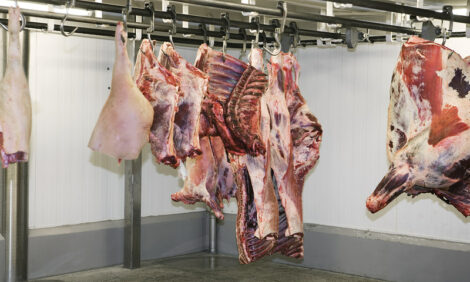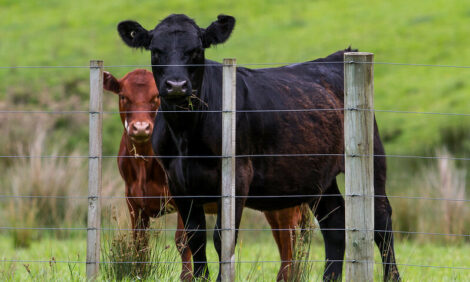



Aussie Beef in High Demand Due to America's Love of Burgers
AUSTRALIA - In Western Australia a new abattoir in the Kimberley region has gone from strength to strength, despite it being a year of tough market conditions where Australia's largest cattle company pulled the plug on its Northern Territory abattoir.The Kimberley Meat Company abattoir, located on Yeeda Station between Broome and Derby, has been steadily processing up to 1,300 head of cattle each week, despite a delay to the season after heavy flooding left the property under two metres of rain earlier in the year.
ABC Online reports that owner of the region's only abattoir, Jack Burton, said the United States had become a key market for their lean beef thanks to the country's love of hamburgers.
Mr Burton said he hopes the US market will take up to 50 per cent of their annual beef exports.
"Our main markets are the US and Indonesia and they were two markets we didn't have access to last year," he said.
"They blend it with a lot of their fatty feedlot offcuts and make a handy burger when they mix it together.
"We also supply a beef jerky company in the US with a lot of lean product."
Historically the US has been an important export market for the region, long before the live export of Kimberley cattle.
The Derby Export Meat Company processed thousands of cattle into steaks destined for US dinner plates before shutting its Broome facility in 1993 after operating for 54 years.
Demand prompts expansion plans
Mr Burton said the abattoir would be looking at a potential $10-million-expansion of their abattoir facilities in 2019 after successfully exporting 80 per cent of their product to 10 different countries in 2018.
"Export is our main game. We're hoping to ramp-up more next year," he said.
"We would need to do some expansions to get out more than 1,300 – 1,400 head of cattle a week.
"We'll make that decision over the break and then start building that over the next dry season so it's ready for the 2020 season."
Alternatives to live export
With Australian Agricultural Company (AACo) mothballing its Livingstone Beef abattoir outside of Darwin earlier this year, Kimberley Meats Company has the only major processing facility within 3,000km for pastoralists in the region.
Mr Burton said it was important to give the Kimberley cattle industry more options so producers were less exposed to the erratic climate of the live export trade.
"We're really keen to ramp-up the value-adding parts of our business [and] being able to grow cattle out to suit the abattoir or the live export industry," he said.
"We're excited about where things are moving with diversification on stations [and] our ability to get access to irrigation water and develop these parts of the country."
Value-adding to the cattle industry
The Yeeda Station abattoir is also opening new opportunities for stations growing irrigated fodder in the region.
Just down the road, the Argyle Cattle Company has recently gained approval to begin constructing a new irrigation precinct at Shamrock Station.
Using 13 centre pivots, the company is proposing to develop 650 hectares of irrigated fodder for a "stand and graze" operation, located 150km south of Broome.
Director Dale Champion said diversification projects of this kind were vital for expanding the Northern beef industry.
"The Kimberley has traditionally produced a lighter animal going into feedlots in Indonesia. Now we can lift our production to see those cattle delivered to market at the maximum possible value, weight and condition," Mr Champion said.
"That will entail our own production coming out of Moola Bulla, Mount Amhurst and Beefwood properties, but prospectively longer-term the facility at Shamrock could afford for external cattle and we may work with other producers in the Kimberley."
It is the third irrigated agriculture proposal to be given the green light in northern WA for 2018, following the approval of developments on Carlton Plains and Pardoo Station earlier this year, and another in the pipeline at Gogo Station near Fitzroy Crossing.
Mr Champion said 2019 would be a turning point for the Kimberley cattle industry.
"The Kimberley has always been regarded as a last frontier," he said.
"What we're doing up there is going to demonstrate to markets, both domestically and abroad, that the Kimberley can produce high quality animals with weight. That's got to be great for producers and certainly a great spin-off for the rest of the community as well."
TheCattleSite News Desk


